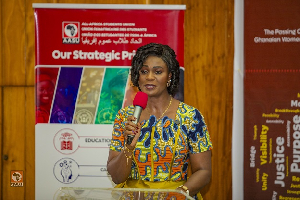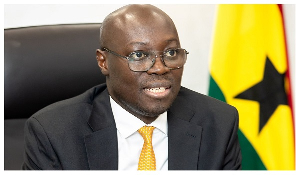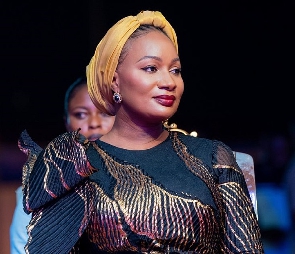Alma Pokua Adade-Prempeh, the wife of Ghana’s ruling New Patriotic Party’s vice-presidential candidate, has declared the newly passed Affirmative Action Law a transformative moment for Ghanaian women, signaling new opportunities in leadership, education, and entrepreneurship.
Speaking at the Affirmative Action Conference in Accra, she lauded the law as a “beacon of real change” that, after years of advocacy, promises to reshape Ghana’s social and economic landscape by empowering women and fostering gender equality.
“This historic legislation is not just a victory for women; it’s a win for Ghana as a whole. It sets the stage for a future where every young woman, regardless of her background, has the tools and confidence to fulfill her dreams,” Adade-Prempeh said, her voice brimming with optimism.
She stressed the significance of passing the Affirmative Action (Gender Equality) Bill on Pan African Women’s Day, noting it symbolizes Ghana’s dedication to inclusive growth.
The Affirmative Action Law mandates gender balance in government, with goals of 50% female representation by 2030, and challenges the private sector to reach a minimum of 30% female representation by 2026.
According to Adade-Prempeh, the law is not just symbolic but a critical framework to “address the socio-cultural, political, and economic imbalances that have marginalized women in Ghana for too long.”
Adade-Prempeh, a Chartered Global Management Accountant, shared her insights on how the law could foster economic empowerment. "Women have the potential to transform Ghana's economy,” she asserted.
“By empowering them with financial resources, training, and mentorship, we are creating a generation of entrepreneurs who can lift themselves and their communities out of poverty. When women succeed, entire communities benefit.”
She highlighted key areas the law seeks to impact: expanding access to quality education, fostering entrepreneurship, and increasing female representation in leadership. For Adade-Prempeh, the goal is clear: to create a Ghana where young women are not just participants but leaders in every sphere of life.
“Representation matters,” she insisted. “When young women see women in leadership roles, they understand that they, too, can aspire to lead, to innovate, and to break barriers. For generations, women have been told what they cannot do. Today, we must turn that narrative around.”
Adade-Prempeh also urged stakeholders to remain vigilant in implementing the law, calling on the government, private sector, and civil society to work together to uphold its commitments.
“Passing the law is a bold step, but real change depends on action at every level. It is our collective responsibility to create an environment where young women are not just welcomed but are encouraged and supported.”
“Let us make the Affirmative Action Bill a pathway toward a more just and equitable Ghana. To the young women here, I say: Believe in your potential. To the policymakers, educators, and leaders, I say: Continue to push for inclusivity and equality,” she added.
The event, attended by prominent advocates and government officials, reflected a renewed energy to accelerate gender equality in Ghana. It was organised by the National Gender Commissioner of the Graduate Students Association of Ghana (GRASAG), Mercy Yaa Boatemaa Appiah, in partnership with the All-Africa Students Union (AASU) on November 4, 2024, at the Accra International Conference Centre.
The Affirmative Action Law is anticipated to set an example within the region, positioning Ghana as a leader in fostering a future of gender-balanced leadership and economic opportunity.
General News of Wednesday, 6 November 2024
Source: www.ghanaweb.com

















